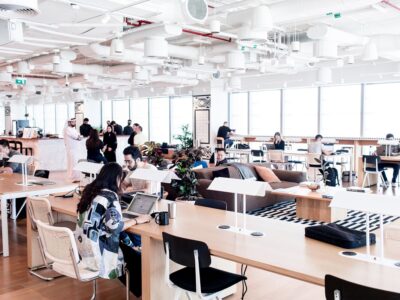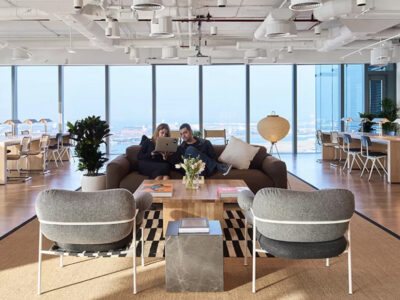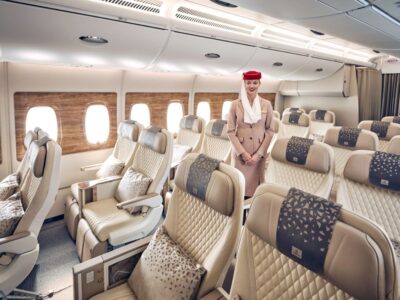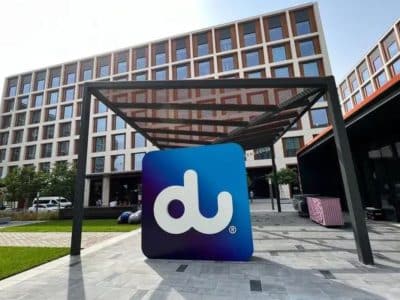As far as home-grown success-stories go, Careem is right up there with the best of them.
The Dubai-born car booking service was launched in 2012 and has quickly become an essential tool for thousands of people looking for transportation – not just in the UAE but across 16 cities in the wider MENA region.
Using its own proprietary mapping database in each market it operates in, Careem can help customers track their rides live on their smartphones and lets drivers identify congestion hot-spots, while booking and paying is taken care of quickly and easily through an app, website, and call centre.
A range of products to suit different needs, including the NOW, LATER, and REPEAT services, as well as the forthcoming Careem Click service (which allows third parties to book for other people), has helped the company to rapid take-up from companies and individuals.
So far in 2015, 50 percent more users have signed up to the service than in the whole of 2014, and the total growth by trip volume for all markets is on average 30 percent per month.
The men behind the business are Magnus Olsson and Mudassir Sheikha, former management consultants with entrepreneurial backgrounds who were determined to use technology to better peoples’ lives.
As I sit with Olsson to find out more about the origins of the company, it becomes clear that the business was always planned to be more than just a money-making venture.
“I came to the Middle East in 2006 as a management consultant and was originally meant to be here for two years,” he explains.
“But I fell in love twice – once with the region and once with my now wife, so I decided to stay.
“I was doing consultancy and having a lot of fun, but I started itching to build something, to go out and be an entrepreneur again – I had been an entrepreneur in Sweden before I became a man in a suit.
“And the whole thing got accelerated in time because I had a brain tumour which happened out of nowhere. I ended up going to the US to have surgery and after that I just decided life is too short. I had some insights into what’s my purpose in life, and other things, and I decided I really wanted to go out and build something.”
Leaving his consulting job, he joined forces with his colleague Sheikha and started to look at ideas.
“It had to mean something,” he emphasised. “I’d just had brain surgery and I felt life is more important. And secondly it had to have potential to become really big because we didn’t want to do a small thing.
“We started looking at sectors that are meaningful in themselves, like education, healthcare, and even the food sector. My favourite idea was to start a fish farm, but my wife said you’re going to smell of fish, so don’t do it.
“In the end it was really our experience as consultants that helped us decide. We spent a lot of time on the road, in Qatar, Kuwait, Saudi, and everywhere we went airlines and hotels they worked quite well, but when it came to ground transportation they were quite poor.
“And they were poor all the way from how you book a car to how you actually get to where you’re going, and pay for it. The whole process was bad and we thought must be way to do it better.
“So we said let’s do this and that’s how we started Careem.”
Expanding on the name company’s name, Olsson explains that he and Sheikha wanted to emphasise the notion of meaningfulness, taking the Arabic word for generous – kareem – and making a play on words by changing the K to a C.
“We set out our values, and they were all based around ‘Careem’.
“Firstly we are Careem to our customers, which means really awesome customer service.
“Secondly we are Careem to our captains. ‘Captains’ is how we refer to our drivers. Most of them are humble, from the sub-continent and poorer parts of the Middle East, and have come here to make a living. But let’s just say they have not always been treated amazingly by people. People tell them they’re late, they’re smelly, they don’t speak good English, and nobody has really given them a chance.
“So we wanted to work with the captains and invest in them so that they are not just financially better off by working with us, but also proud of what they are doing – helping them fee a different kind of self-worth.
“The last way we want to be Careem is to colleagues, to given them a place that is not a bureaucratic, top-down decision-making place, but a place that everybody feels part of. We want everybody to speak up, we want to give an obligation to dissent, and at the end of the day we wanted to put our money where our mouth was so everyone in Careem have shares in Careem, so we can go in and say ‘this is your company, so figure it out’.”
As well as creating a business with meaning, Olsson and Sheikha were also determined to build a business that was capable of swift expansion.
“We were very ambitious from the beginning, so it was about growth, growth, growth,” says Olsson.
“The business model is that we take commission per trip, so you have to be quite large before the financial side of it makes much sense. We have to go quite big, and because the region is not one big place but lots of small places, we realised we had to grow to start expanding.
“Transportation is a big market and I think our latest estimate is that for the region that we play in, there are about 700 million people. About half of them live in cities, and currently that’s about a $10-12 billion car transportation market.
“We knew market was there so that was part of plan. But rate of adoption has been faster than we thought. It was really clearly a very big need for people to move around in a reliable way.
“So we were in the UAE, serving Abu Dhabi and Dubai, and we tried Doha to see how it would work operating in another country, with currency conversions, different phone numbers, and so on. After we got warm in Doha we were ready to take on Saudi Arabia.
“We knew Saudi was big on the radar for our corporate customers, but what has happened in Saudi with the consumer market – particularly the females – has been quite phenomenal. It’s really taken off.
“If you think about it, half the population is not allowed to drive but still need to move around, and some of their needs are very basic – we take them to work, take them out shopping, take their children to school – we’re basically their personal driver.”
With Saudi cracked, Careem started to move out throughout the region, establishing a presences in Bahrain, Kuwait, and other smaller yet underserved areas.
Bigger markets such as Cairo followed, posing new challenges for the business.
“We thought ‘how the heck is this going to work?’ says Olsson.
“It’s such a big city, traffic can be a nightmare – how are we going to solve this? But we had another phenomenal welcoming.”
Earlier this year the company moved into Morocco, acquiring private car booking service Taxiii to service Rabat, Casablanca and, soon, Marrakech. Other cities are in the pipeline, including Amman in Jordan, which is currently being piloted.
“We have a long list of cities on the radar,” continues Olsson.
“Obviously you prioritise and go to the big ones first, but there are also a lot of smaller cities that are of interest. In the UAE we have smaller cities, in Saudi Arabia there are smaller cities. There is a lot of ground to cover even in the geography we have selected as our home.”
Growth and expansion hasn’t just been geographic. The nature of the service and the variety of options for the consumer have evolved in a short space of time too.
Launching as a corporate service, the founders soon realised the potential for other avenues.
Olsson explains: “You don’t have a company in the car, you have a person there, and they very quickly realised that it’s a pretty good service to get picked up on time, reach their destination without back-seat driving, no haggling on price, and so on. So they wanted to use it for their own needs, not just company needs.
“It started with people that had challenging trips – early morning airport runs, places that it’s difficult to find a taxi, and so on, and it grew from there.
“Then people started book to take children to nursery … so we thought about having a car seat. I don’t want my daughter being driven around without a seat, so the team had the idea to build a dedicated fleet of cars with seats pre-installed. That has taken off a lot.
“Now people are also using us to do other types of things – to deliver a document or other important things. So we’ve found a lot of different ways to grow the service.”
With high-profile competitors such as Uber continuing to spread their influence in the region and across the world, there is a battle for market share.
But Olsson is unfazed by any talk of rivalry.
“Competition is great,” he says.
“Most of all it’s great for the customers, but also great for us because we have to stay on our toes – we cannot rest. We have to always run faster. Sometimes, when competition has come into markets that we’re in, our growth has accelerated, and it’s probably a combination of the fact that overall awareness goes up, and we are actually running faster.
“So we have to stay ahead. Now, staying ahead for me is more to do with making sure operations run well. We are not a sexy technology company – it’s operational. Whether a customer is happy with your service or not has less to do with the features you have on the app and more about does the car show up on time? Is the captain nice and is he knowledgeable? Will he take you to the place without getting lost?
“That’s still the service, and that’s where we are continually pushing to make that better.”
Another advantage for Careem, says Olsson is the fact it was born in, and has been grown in, the region.
“We have a product that is more suited to this part of the world,” he says.
“We have a very localised execution. You can’t say you’re local if you’re Dubai based because you’re still not local in Riyadh. It’s a diverse region, so our teams on the ground in each city are very closely involved with how we evolve the product and execute locally.
“We work very closely with regulators, the RTA, the ministry of transport in Saudi Arabia, and so on, so we try to be part of the ecosystem.
“And that includes understanding payments here. In Saudi Arabia, for example, credit card penetration is something like five percent. A lot of people use debit cards not credit cards, so if you’re only allowing credit card payments, you’re only targeting five percent of the market. So we allow different methods of payment to give customers the option.”
Referring back to Uber, Olsson praises the California-based company and its achievements to date, but questions its commitment to the Middle East.
“What Uber is doing is remarkable – they are amazing, but they are in 300 cities,” he says.
“Their focus is going to be America, then Europe, then Asia, and the Middle East is maybe fourth or fifth.
“This industry is a city-by-city play. In most cities something like 95-99 percent of people stay there – they’re not travelling a lot, so whoever has the best car service in Riyadh is going to win Riyadh. Whoever has the best car service in Cairo is going to win Cairo.
“It’s not a Facebook thing where you have a global network effect. If I live in Cairo I don’t really care if you have an awesome service in Stockholm.”
The company can boast some impressive statistics which go some way to explaining its success to date.
Careem is on time 99 percent of the time for its LATER service, and the average estimated time to get a car to a customer requesting a NOW booking is between five to 10 minutes.
They are the kind of figures that have made the business appealing not just to customers, but the ever-important investors – an area Careem has excelled in.
Backed by STV Ventures and Al Tayyer Travel Group, as well as a number of other angel investors, the company has received more than $12 million to date, with access to future funds as an when they continue with their expansion plans.
“I think we were lucky with timing,” says Olsson.
“It’s easier to raise money when you’re in a sector that happens to be hot. We hadn’t planned it, but now technology and logistics is kind of hot.
“Our backgrounds also helped. I was an entrepreneur in Sweden, and Mudassir was I think 12 years in Silicon Valley with different start-ups, and then we had a management consultant background, so that made a lot of investors feel comfortable with us, and believe that we could scale.
“Now we’re in 17 cities and we have more than 100 people headcount, so investors believe we can actually build this. There’s a very strong belief in the sector by a lot of people now, so more money is there.
“Overall this is the time for entrepreneurship and start-ups in the region – there is a lot of money coming in. New funds are being opened, there are a lot more angel investors showing an interest, so I think the scene is very different now than it was a couple of years again.”
Olsson explains that the increasing number of incubators and accelerators is proof that entrepreneurs in the UAE are enjoying the benefits of a fast-evolving ecosystem.
“Look at the number of funds that are opening, incubators that are opening, all of the start-up conferences and other things from the governments’ side that are making things easier,” he says.
“When we started we didn’t look at incubators, and when you start yourself and have to set up the legal structure, get visas, and so on. There’s a lot to do. I think in the last three years the government has made that a lot easier. They realise that Dubai really can be the hub in the region for a lot of talent. So that’s very good.
“I think previously people would only come to Dubai if they were offered a nice job. Now people come to Dubai to be entrepreneurs. That wasn’t possible or attractive before.”
Despite the increasing ease for entrepreneurs, Olsson still sees challenges for start-up founders.
“It’s still quite expensive,” he begins.
“We were lucky to have jobs beforehand, so we had some money saved up, but it’s tricky to be lean and bootstrap in a place like Dubai.
“Another challenge is that while Dubai attracts a lot of talent, because of visa rules you don’t have people hanging around between jobs – you have to go out and actually hire people – poach them from somewhere.
“There’s a lot of talent, but you have to go out and get it. So that’s still a barrier.
“But overall it’s a great time to be here.”








